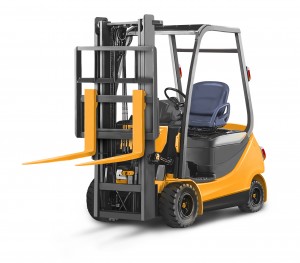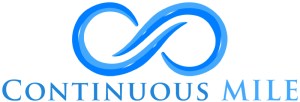
One of my summer jobs was working at a busy warehouse, filling wooden pallets with various orders of canned fruit or juice products. Forklifts then loaded the pallets on a trailer for shipping.
I remember the day I filled out the employment application. The job was on second shift. It was hard to find anyone who wanted to work these hours, so I was hired. The woman from human resources asked me if I could start working the same night. I showed up 30 minutes before my shift for orientation. While I don’t recall everything that was said, the supervisor’s safety expectations were memorable. The speech from Lyle went something like this:
“Most of these guys have been working here for more than 15 years. So ask them anything you want to know. The work isn’t that hard, but you can expect to get a few minor injuries before the summer is over. Nothing serious – maybe a gash from a box cutter or a sore toe from a case that is dropped accidentally. No open-toed shoes, by the way. There’s a first aid kit in the break room. If you need something more than a bandage or ointment, come see me. Now look, the number one thing you need to remember is that those guys running the forklifts are moving fast. The sooner we get these trucks loaded, the more time we all have at the end of the shift to relax. So stay clear of them at all times. They have the right-of-way in the aisles. Any questions?”
What questions would an 18-year-old ask? I had none.
I shouldn’t have been surprised when I noticed the guy who was training me had a scar above his left eyebrow. When I asked him about it several weeks later, Rick said a carton started to slide off the top of a second-tier pallet. When he reached up to push it back, it fell off and caught him just above his eye. He shrugged, “It just wasn’t my day. At least it didn’t fall on my foot – now that would have really hurt!”
Looking back at this experience, it is obvious that safety considerations at that facility were almost nonexistent. From my perspective, the most glaring factor in the casual attitude towards safety were the expectations of the supervisor (and his manager). He expected his employees to be injured. Not seriously, of course. But he expected them to get a few nicks and bruises along the way. It was just part of the job.
We get what we expect
In retrospect, I was an eye-witness to the Rosenthal Effect, which states: The greater the expectation of achievement, the greater the level of success. Unfortunately, my situation demonstrated the reverse: The lower the expectation of achievement, the lower the level of success.
Rosenthal and Jacobson conducted a classic study that demonstrated how our expectations can influence people.
The study was set up like this: To test whether a teacher’s expectation of student performance affected student achievement outcomes, researchers gave an IQ exam to elementary school students. The students were ranked based on scores. Teachers were told that the top 20% of students have high potential to succeed. Further, the teachers were provided with the names of the students in the top 20%.
Here is the interesting part. What the teachers didn’t know was that they had actually been given a random list of names. The researchers came back at the end of the school year and administered the exam again to the same group of elementary students.
What they found was astonishing: The second and third-graders who had been labeled as “high potential” at the beginning of the year had advanced significantly beyond their peers—as measured by significantly higher IQ scores. But recall that these students had been randomly assigned to this list!
The researchers concluded that the teachers’ expectations of student achievement actually became self-fulfilling. Those students labeled “smart” actually became so. The teachers (consciously or unconsciously) paid closer attention to these students, or treated them differently when they were having difficulty. The teachers and students at this elementary school believed in the existence of “smart” and “not-so-smart” students. They made it their reality.
Expect to work safely
Lyle expected the guys on his shift to have a few minor injuries from time-to-time. And so it was. Further, this belief was held by the guys who worked for Lyle – and they accepted it!
As a supervisor or manager, what expectations do you have for others? How do you share these expectations with your employees. Importantly, it isn’t just what you say, but what you do that gives you credibility. As the old adage goes, “Your actions are so loud I can’t hear a word you are saying.”
I have no doubt that if Lyle had set a different level of safety expectation for his employees, their safety performance would be dramatically better. Why? Because he would be (consciously and unconsciously) providing a focus on safe working habits for everyone. He would be coaching his crew on situational awareness and influencing them to watch out for one another. Lyle and his crew would believe in the existence of “safe” employees. And it would become their reality.
Thankfully, I don’t recall any injuries while working that summer. I never went back to that job. But I vividly remember Lyle’s distinct limp. One of my co-workers told me that Lyle was in an accident many years ago. The forklift he was operating tipped over when he rounded a corner at excessive speed and tried to avoid a pedestrian.
I can’t help but wonder what safety expectations Lyle’s supervisor had…
References
http://www.psychologytoday.com/blog/brain-babble/201412/why-were-so-easily-fooled-and-why-it-matters
http://psych.wisc.edu/braun/281/Intelligence/LabellingEffects.htm
Image courtesy of Atlantic Training

